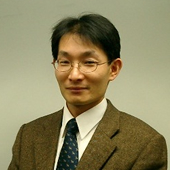
Scientific Research on Innovative Areas, a MEXT Grant-in-Aid Project FY2011-2015

Home
> Introductory Message
Introductory Message

Professor Masahiro Terada
Head Investigator
Graduate School of Science, Tohoku University
Head Investigator
Graduate School of Science, Tohoku University
In this Scientific Research on Innovative Areas, we aim to create the future vision of manufacturing by organizing collaborations of research groups focusing on organocatalysis. Organocatalysts have recently received considerable attention as a third group of catalysts. (The other two are biocatalysts and metal catalysts.). Active research topics in synthetic organic chemistry are the development of catalysis, including organocatalysis, in the broad sense. With the vision that basic research will realize practical industrial applications, such developmental research has been enthusiastically conducted in both industry and academia in Japan as well as in many other countries around the world. Although Japan has the world’s highest research standards, drastic advances in the science of manufacturing are urgently needed. To meet the social demand to effectively and safely produce pharmaceuticals and functional materials, which are becoming increasingly complicated and diverse, on a large scale, the development of innovative catalytic methods while considering the environment are necessary. To promote sustainable manufacturing, we have launched a full-scale effort to establish the field of organocatalysis.
To elucidate catalytic phenomena, it is highly desirable to design and develop organocatalysts with superior characteristics, including enhanced catalytic activities, handling ease, and stereochemical controllability. Moreover, to understand the underlying mechanisms of substrate-catalyst interactions, it is essential to cultivate 1) molecular transformation systems that cannot be achieved by metal catalysts and 2) novel molecular transformations based on new methodologies. Practical synthetic processes based on truly advanced molecular transformations using organocatalysis are highly demanded. Consequently, we aim to establish molecular transformations via organocatalysis, a new academic field, through an upward spiral that closely and expansively connects development research activities with each other, thereby significantly contributing to the science of manufacturing.